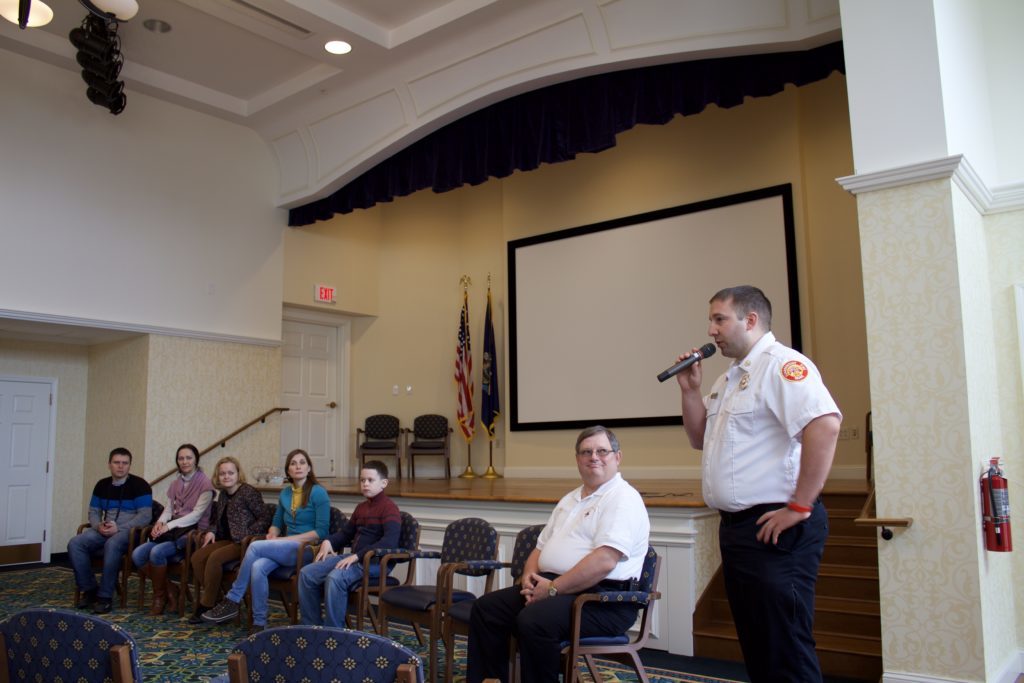Firefighters from Portland, Maine and Archangel, Russia recently stopped by Piper Shores for a discussion in the Founder’s Room. The firefighters are working together to learn each other’s best practices and to share training expertise and techniques as part of Project Brotherhood.
Project Brotherhood promotes exchanges between the firefighters in Greater Portland and the City of Archangel in Northwest Russia; to provide opportunities for Russians and Americans to build cooperation, share time, ideas, and the best of our communities; to bring true friendship and understanding to our peoples; and to improve the chances for world peace through citizen diplomacy.
James Butler, Fire Inspector/Commercial CEO of the Scarborough Fire Department and a coordinator of the Project Brotherhood Russian American Exchange, said the program provides opportunities to share “what we do well here and what they do well there.”
Among the presenters at Piper Shores were Mr. Butler, representing Maine’s firefighters and rescue teams, as well as Ekatrina Maksimova, rescue service psychologist; Svetlana Kuznetsova, fire prevention specialist; Sergei Kvashnin, fire team leader; 15-year-old cadets Maxim Grigoryev and Pavel Kaliaev, and Kuznetsova’s son, fourth-grade student Vadim Kusnetsova.
Ekatrina Maksimova, rescue service psychologist in Portland’s sister city, Archangel, said there are “two psychologists for 140 (rescue workers), and we all work together closely, in the same building, which makes it easy to collaborate.”
One area where the Russians are ahead of their American counterparts is in the psychological support services they provide for fire victims and their relatives, a specialty of Maksimova. Maksimova goes on rescue calls not only to help victims and rescue workers, but also to observe how a first-responder talks to a patient. She can use her observations to make suggestions on how to improve communication.
Maksimova said she is a part of the response team, so after a difficult call firefighters can also seek her assistance. The psychologists also help firefighters cope with post-traumatic stress. “This is an area we want to do better on here,” says Butler.
The Russians also use psychologists when hiring firefighters. Maksimova said she is part of the interview process and has a role in determining whether an applicant would be a good fit for the job. Specialists also teach students of all ages about safety issues that may surround ice, bicycles, fires and cooking.
When it comes to sharing information and expertise during Project Brotherhood, both teams are working on learning each other’s language and find that when communication fails, drawing on napkins can fill the gap surprisingly well.
“Language is sometimes a barrier. So, we communicate in other ways. Drawing is a great way to share techniques and talk about all the kinds of equipment we use,” explained Maksimova.
When asked what they thought about the Piper Shores retirement community, the Russian firefighters were full of praise. “We have support for our seniors in Russia, of course, but not like this! Such a lovely place, and such wonderful people!”
